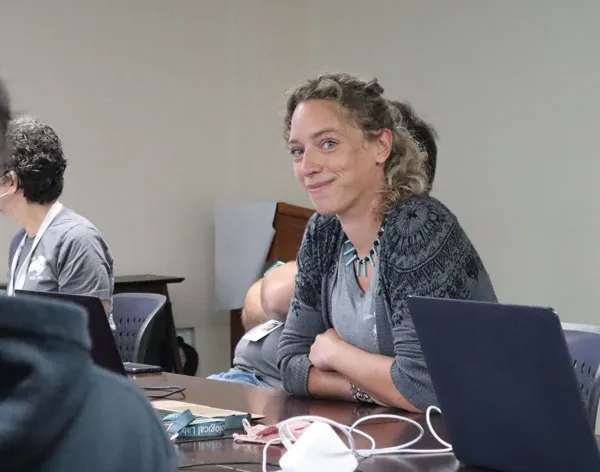Undaunted, Grass Fellows Explore Neural Systems -- from Ticks to Alligators

Like all of MBL’s summer programs, the Grass Fellowships in neuroscience were deferred last year due to the pandemic. Waiting no more, five of the 10 accepted fellows arrived at MBL last May, eager to carry out their independent research projects on animal systems ranging from ticks to squid to alligators.
“The fellows had to step into an empty lab at MBL, set up their own equipment and plan their own experiments, which is not easy!” said Grass Lab director Melissa J. Coleman of Scripps College. Laura Cocas of Santa Clara University was associate director of the lab this summer.
The fellows presented their research results (summarized here) on Sept. 2 to audiences both at MBL and streamed in via Zoom. Congratulations to all!
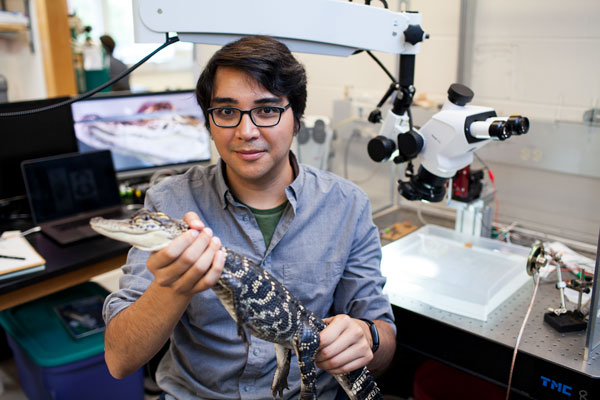 Grass Fellow Duncan Leitch (University of British Colombia) holds his research system: an American alligator. Leitch studied the thousands of tactile receptors on the alligator’s face that confer an exceedingly acute sense of touch. Credit: Daniel Cojanu
Grass Fellow Duncan Leitch (University of British Colombia) holds his research system: an American alligator. Leitch studied the thousands of tactile receptors on the alligator’s face that confer an exceedingly acute sense of touch. Credit: Daniel Cojanu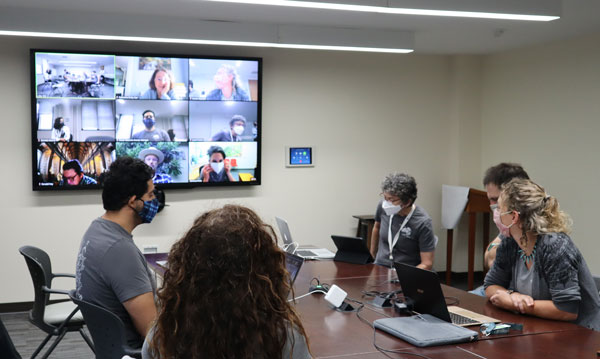 The Grass Fellows and director Melissa Coleman (center) prepare for their research symposium in the Lillie Building. Credit: Diana Kenney
The Grass Fellows and director Melissa Coleman (center) prepare for their research symposium in the Lillie Building. Credit: Diana Kenney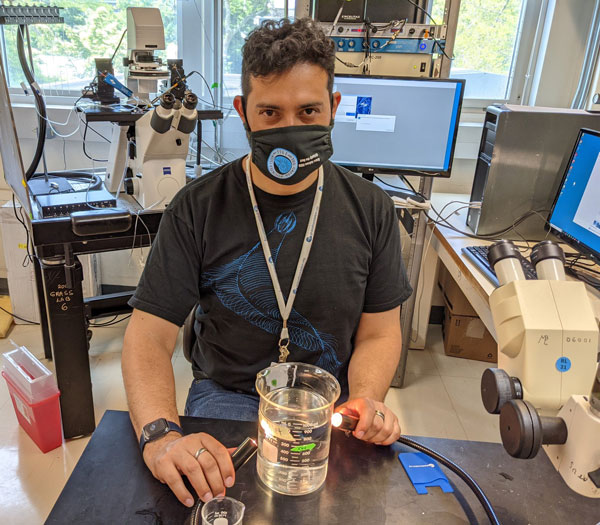 Grass Fellow Oscar Arenas Sabogal (Universty of California, Berkeley) in the Grass Lab at MBL. Sabogal explored the detection of mechanical force in the ctenophore, Mnemiopsis leidyi. Credit: Melissa J. Coleman
Grass Fellow Oscar Arenas Sabogal (Universty of California, Berkeley) in the Grass Lab at MBL. Sabogal explored the detection of mechanical force in the ctenophore, Mnemiopsis leidyi. Credit: Melissa J. Coleman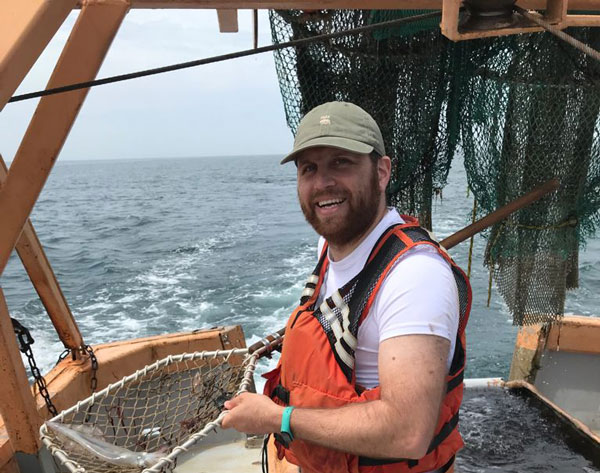 Grass Fellow Bernardo Pinto (University of Chicago) holds a netted squid on the MBL's collecting boat, the Gemma. Pinto studied the effects of electrical activity on protein synthesis within the squid giant axon. Credit: Melissa J. Coleman
Grass Fellow Bernardo Pinto (University of Chicago) holds a netted squid on the MBL's collecting boat, the Gemma. Pinto studied the effects of electrical activity on protein synthesis within the squid giant axon. Credit: Melissa J. Coleman 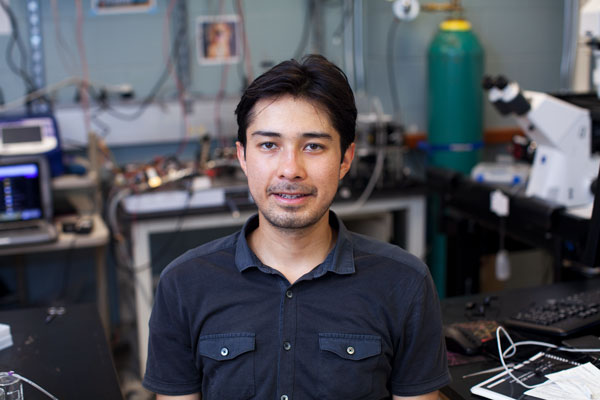 Grass Fellow Luis Bezares-Calderon (University of Exeter) studied how planktonic animals sense pressure, using the larva of the sea squirt Ciona. Credit: Daniel Cojanu
Grass Fellow Luis Bezares-Calderon (University of Exeter) studied how planktonic animals sense pressure, using the larva of the sea squirt Ciona. Credit: Daniel Cojanu